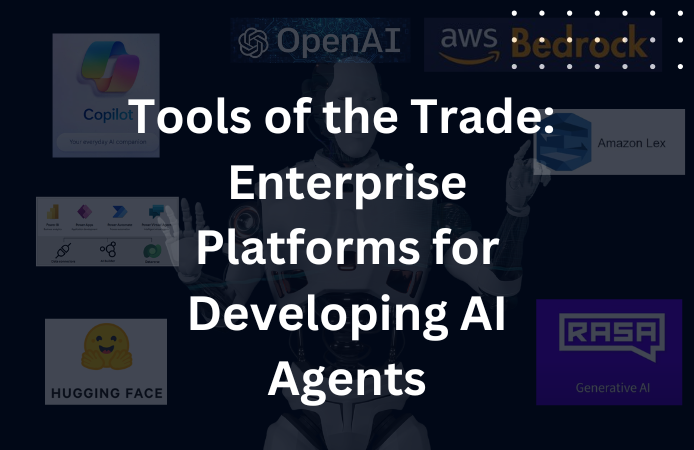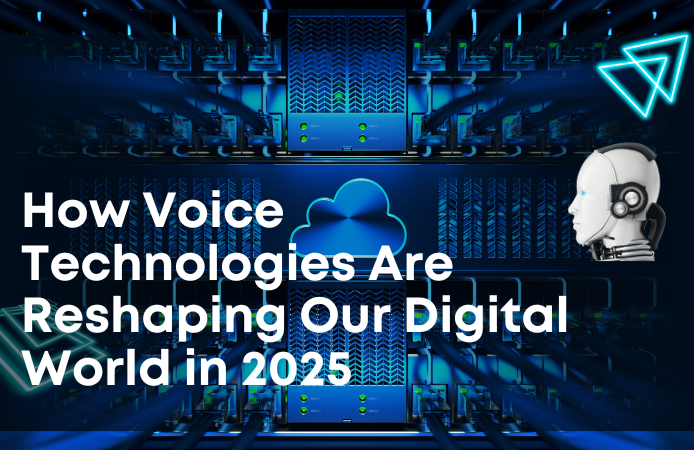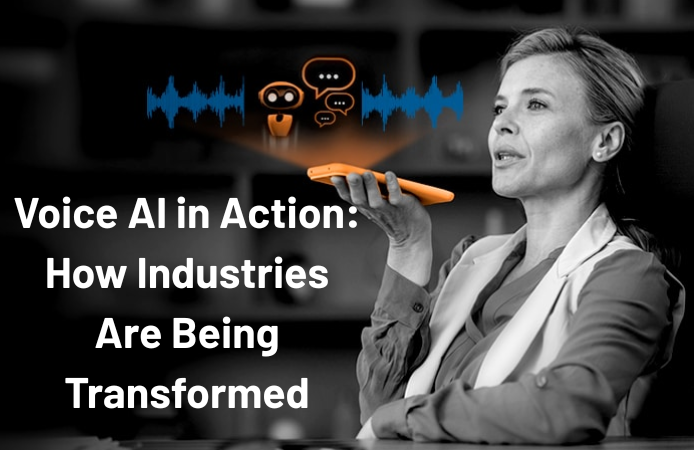Tools of the Trade: Enterprise Platforms for Developing AI Agents
As the journey in agentic AI and automation progresses, we are beginning to see platforms being tuned and enabled to support such features and solutions. In my previous article (here), I gave an introduction into the concept of AI Agents and Automation. We also did a comparison of both technologies. In this article however, we would explore some of the platforms that help enable Agentic AI.
Knowing that the list of AI tools and platforms is not exhaustive and new ones are released every second, we will pick a few popular platforms and take it from there. We would consider some established cloud providers and some open-source providers.
The article delves into platforms such as OpenAI, Microsoft Azure AI, AWS, Hugging Face, and Rasa, providing an overview of each. It discusses how OpenAI’s Operator and Agent Microsoft’s AI Builder and Copilot Studio are highlighted for their low-code solutions that integrate seamlessly with existing applications. AWS’s offerings, including Amazon Lex and Bedrock, are noted for their capabilities in building conversational interfaces and managing knowledge bases. Hugging Face is recognized for its open-source contributions to natural language processing, while Rasa is commended for its customizable framework for building conversational AI. Overall, the article provides an examination of these platforms, aiding readers in navigating the complex landscape of AI agent development.
While the need for Agents will vary from organization to organization, I believe this would help you jumpstart your journey to build, deploy, and deliver your AI Automation and Agents.
OpenAI
OpenAI has deployed 2 approaches to the AI Agent implementation, one for end-users with easy use and another for developers. The end-user version is referred to as Operator, while the developer version is referred to as the OpenAI Agent SDK.
Operator is OpenAI’s new offering designed to extend AI agents’ capabilities by enabling them to autonomously execute computer operations. It serves as a bridge between high-level natural language instructions and low-level system tasks. It is targeted at end users and has the following key components and features.
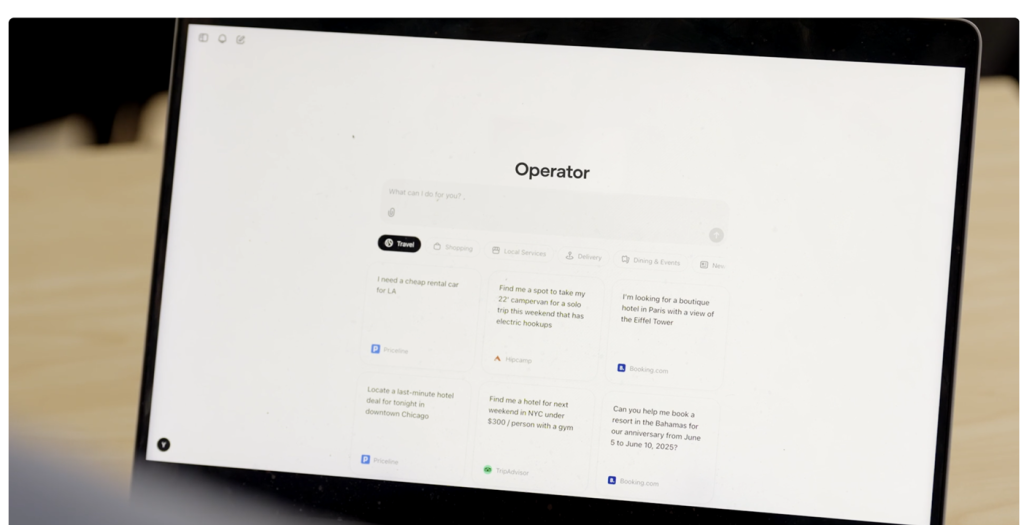
Autonomous Task Execution – Operator allows AI agents to execute tasks on a computer without human intervention. It works by taking user instructions, decomposes them into actionable steps, and directly interacts with system functions—whether it’s file manipulation, running commands, or integrating with other tools.
Operator is designed to work alongside existing OpenAI models and tools.
Operator also has complementary Capabilities that augment natural language capabilities with the ability to perform tangible actions on devices, making agents not just conversational but also operational.
The OpenAI Agent SDK is a toolkit designed to help developers create and orchestrate multi-agent systems. It provides a set of primitives and frameworks that simplify the construction of AI agents capable of reasoning, planning, and performing multi-step tasks. The SDK emphasizes modularity, traceability, and ease of integration with external tools.
By using OpenAI’s Agent SDK, developers can build advanced, modular AI agents that not only generate natural language responses but also interact with external data sources and systems in a controlled, orchestrated manner. This setup is particularly useful for enterprise applications where complex multi-step tasks need to be automated reliably.
Microsoft Azure AI
Microsoft’s AI offerings provide a comprehensive ecosystem for developing intelligent agents, making AI more accessible and practical for businesses aiming to enhance their operations.
Microsoft also has 2 approaches to the Agentic AI, one that is end-user friendly, based of its Power Platform a blend of its Microsoft Power Automate leveraging the AI Builder & CoPilot studio and one that is focused on developers called Azure AI Agent Service.
Microsoft’s suite of AI tools, including Azure AI Agent Service, Power Platform’s AI Builder, and Copilot Studio, significantly streamline the process of building and deploying intelligent agents, thereby enhancing productivity and operational efficiency.

The AI Builder, a feature of Microsoft’s Power Platform, empowers users to create and utilize AI models that optimize business processes. It offers both prebuilt models for common scenarios and the flexibility to create custom models tailored to specific needs. By integrating seamlessly with Power Apps and Power Automate, AI Builder facilitates the automation of processes and the extraction of insights from data, making AI accessible to users without extensive coding experience.

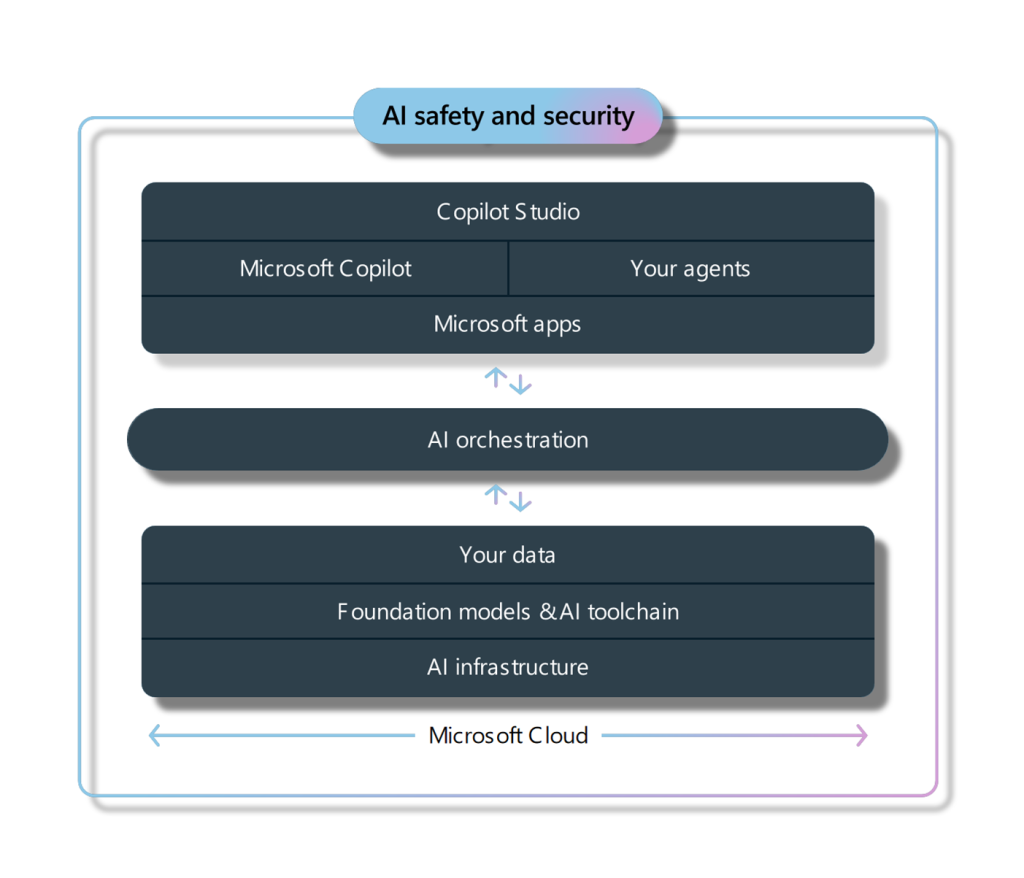
The Copilot Studio provides a graphical development environment for building AI agents using generative AI, sophisticated dialog creation, knowledge integration, actions, and built-in analytics. This low-code platform enables users to create and orchestrate complex logic, ensuring that agent experiences are both powerful and intuitive. One of its standout features is the ability to connect to various data sources using prebuilt or custom plugins, enhancing the agents’ capabilities and adaptability.
By leveraging these tools, organizations can automate routine tasks, enhance customer experiences, and make data-driven decisions. The integration of AI Builder with Copilot Studio, for example, allows for the creation of AI agents that utilize existing knowledge bases to provide accurate and efficient responses to user inquiries. These advancements not only improve operational efficiency but also free up human resources to focus on more strategic activities.
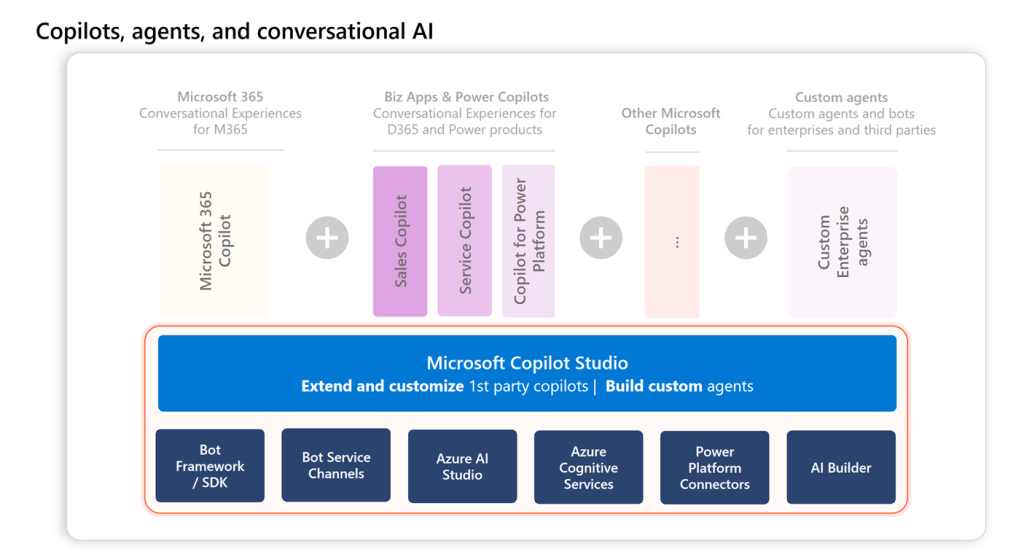
Azure AI Agent Service
Azure AI Agent Service is a fully managed platform that enables developers to securely build, deploy, and scale high-quality AI agents without the need to manage underlying compute and storage resources. This service simplifies the development process by reducing the amount of code required to support client-side function calling, allowing for rapid deployment of AI solutions.
Amazon AWS
AWS’s approach to agentic AI is built around leveraging managed, scalable services to create digital assistants that not only converse naturally but also perform complex, multi-step tasks autonomously. At the forefront of this solution is Amazon Lex, which serves as the primary conversational interface. Lex uses advanced natural language understanding to interpret user input—whether via text or voice—identify intent, manage multi-turn dialogues with session context, and even trigger built‑in generative features like QnAIntent. This ensures that when users ask questions, Lex can efficiently route their requests, invoke the right functions, and seamlessly integrate with other AWS services.
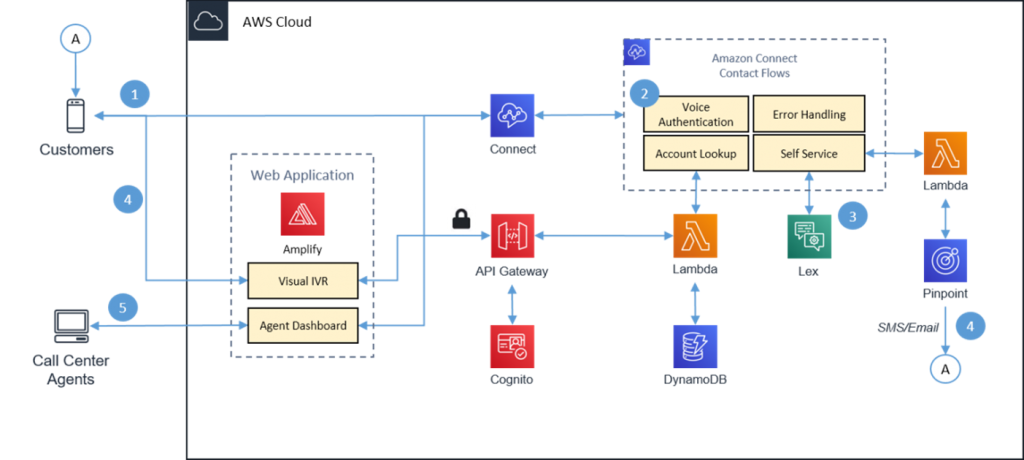
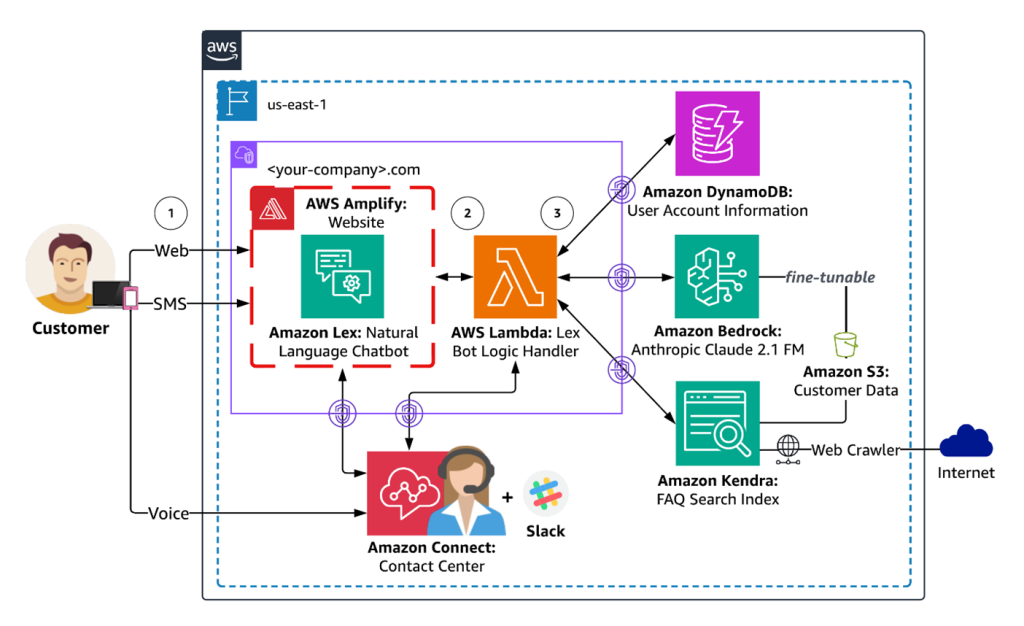
Supporting Lex’s generative capabilities is Amazon Bedrock, the engine that powers content generation and reasoning. Bedrock offers access to a wide range of foundation models from leading providers (such as Anthropic Claude and AI21 Labs) and Amazon’s models like Titan. It enables organizations to create and manage knowledge bases by indexing documents—transforming them into semantic vectors for rapid, context-aware searches. Through its Retrieval Augmented Generation (RAG) approach, Bedrock retrieves the most relevant information to enrich user queries, ensuring that the responses are both accurate and grounded in the latest enterprise data. Together, these services form a robust ecosystem that simplifies the development of intelligent, scalable AI agents capable of transforming customer support and internal operations.
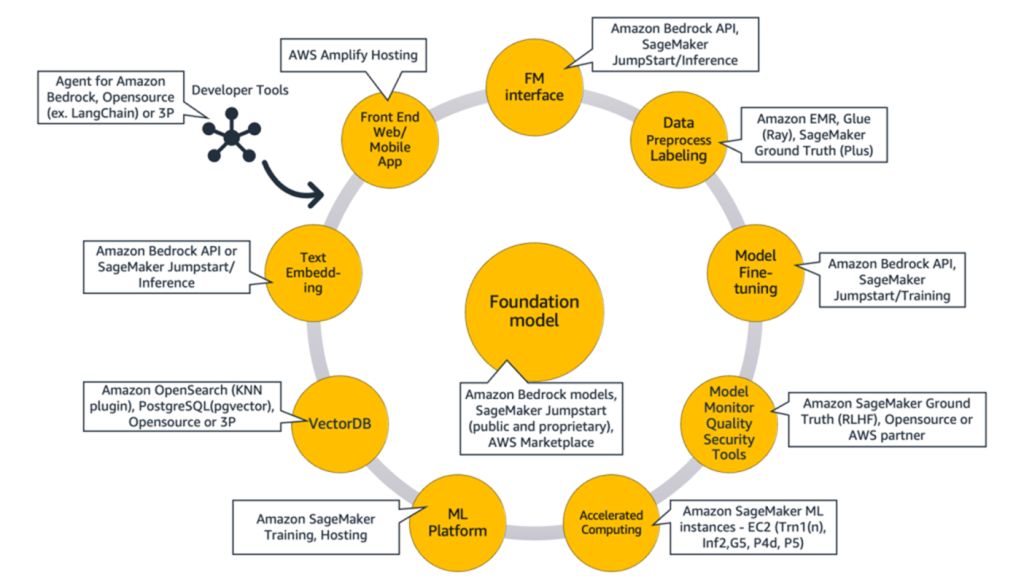
AWS Bedrock in a nutshell
The integration of these components creates a powerful, scalable digital assistant that leverages both conversational AI and deep organizational knowledge to deliver accurate, real-time responses.
AWS’ approach requires some deeper level of expertise as opposed to the citizen/entry level approach offered by Microsoft and Open AI.
Hugging Face
Hugging Face is a leading open‑source platform that democratizes access to state‑of‑the‑art machine learning models and tools.
In essence, Hugging Face simplifies building, deploying, and sharing advanced AI solutions, making cutting‑edge technology accessible to everyone.
Hugging Face plays a pivotal role in advancing agentic AI by providing tools and frameworks that enable the development of AI agents capable of autonomous decision-making and task execution.
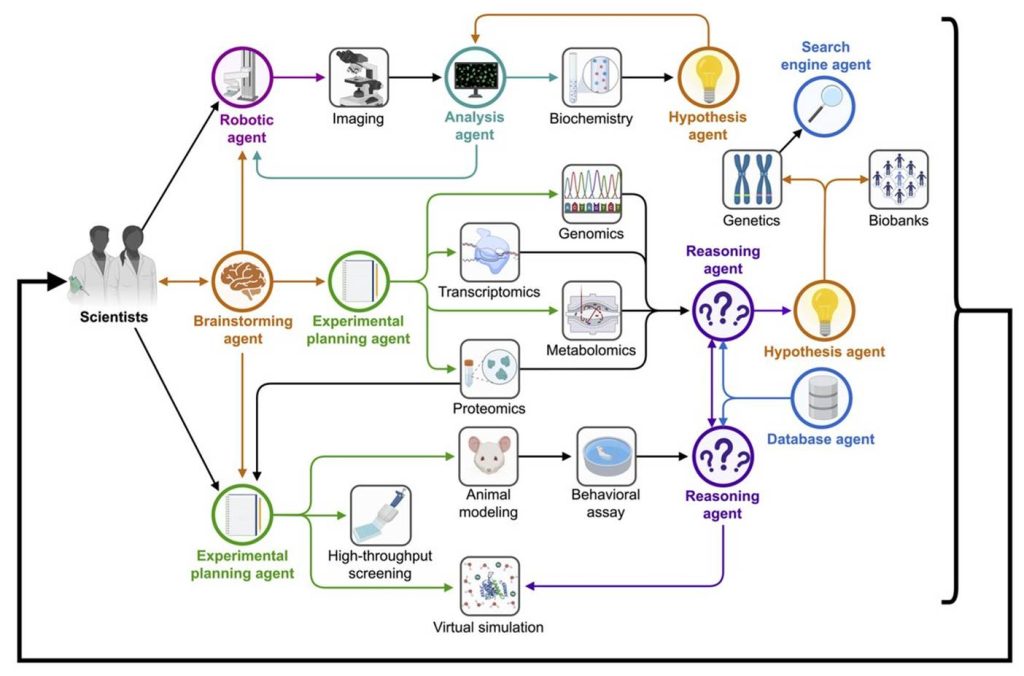
Figure 1 Hugging Face scenario with Biomedical Agents
It provides a vibrant community and an extensive ecosystem that includes:
- Transformers Library: A widely used collection of pre-trained models for natural language processing, computer vision, and more.
- Datasets and Tokenizers: Tools and repositories to help researchers and developers preprocess and share data.
- Model Hub: A central repository where users can discover, share, and deploy machine learning models.
- Developer Tools: Frameworks and libraries (like Hugging Face Spaces and the Accelerate library) that streamline model deployment and experimentation.
- Community and Learning: Educational resources, courses, and forums that foster collaboration and innovation in AI.
AI Agents Course
To democratize the understanding and development of AI agents, Hugging Face offers a free, comprehensive AI Agents Course. This course guides learners from basic to advanced concepts in building AI agents, making the technology more accessible to a broader audience.
Transformers Agent
The Transformers Agent system allows developers to build agents that leverage LLMs alongside functional tools. This integration facilitates complex workflows, such as multi-step reasoning and decision-making processes, enhancing the agent’s ability to perform a wide range of tasks autonomously.
By integrating with frameworks like LangChain, Hugging Face enhances the orchestration capabilities of AI agents. This synergy enables the creation of applications that go beyond static responses, allowing agents to engage in multi-turn reasoning and complex task execution. Through these initiatives, Hugging Face empowers developers and organizations to build sophisticated, autonomous AI agents, advancing the field of agentic AI and its practical applications.
Rasa
Rasa is an open‑source framework that plays a crucial role in agentic AI development and deployment by empowering organizations to build highly customizable, context-aware conversational agents.

Here’s how Rasa contributes:
- Robust Natural Language Understanding:
Rasa NLU extracts user intents and entities from conversations, ensuring the agent understands user queries accurately. - Advanced Dialogue Management:
Rasa Core manages multi-turn conversations with flexible policies, enabling the agent to maintain context and handle complex interactions. - Custom Action Integration:
Developers can define custom actions that allow agents to interact with external APIs and databases or execute business logic, turning a simple conversational bot into an autonomous digital assistant. - Iterative Improvement with Rasa X:
Rasa X facilitates continuous learning by collecting real user feedback. This allows developers to refine conversation flows and improve the agent’s performance over time. - Open-Source Flexibility and Control:
Being open-source, Rasa offers full transparency and customization, enabling enterprises to adapt the system to specific regulatory or business requirements while integrating seamlessly with existing IT infrastructures.
In summary, Rasa helps organizations deploy AI agents that engage in natural, dynamic conversations and execute tasks autonomously, making them well-suited for enterprise applications like customer service, internal support, and more.
Conclusion
Choosing the right platform for AI agent development depends on business needs, scalability, and integration requirements. Whether leveraging pre-trained models from OpenAI or building custom solutions with Rasa, businesses have a range of tools to create AI agents that enhance efficiency, improve customer experiences, and drive innovation.
By ‘Tosin Shobukola
Tosin Shobukola is a seasoned leader in Enterprise Technology Solutions and business innovation, with over 17 years of experience across multiple industries. Currently leading ApreeCourt Solutions, he crafts innovative solutions driving Digital Transformation, Artificial Intelligence and Data Analytics. His tenure at Microsoft saw him revolutionise cloud solutions, saving clients significant costs. As the founder of Analytics Africa (a Social Enterprise company), he fosters talent and inclusivity in data analytics. With diverse interests, including hosting a podcast and community service, Tosin is a thorough-bred professional with global impact who embodies excellence and innovation, poised to propel organizations to unparalleled success.

